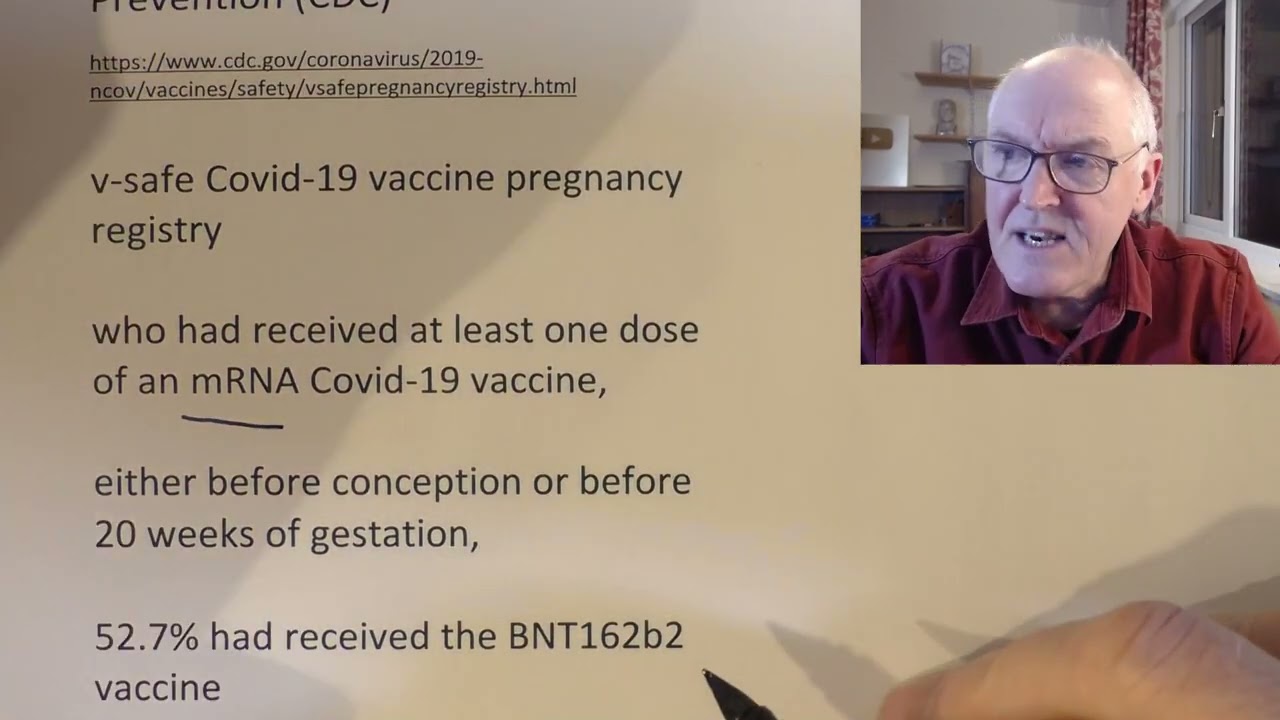Risk of spontaneous abortion after vaccination
Risk of Stillbirth Among Women With and Without COVID-19 at Delivery Hospitalization — United States, March 2020–September 2021
https://www.cdc.gov/mmwr/volumes/70/wr/mm7047e1.htm?s_cid=mm7047e1_x
Sixth, it was not possible to assess vaccination status in this analysis.
However, because COVID-19 vaccines are highly effective, and COVID-19 vaccination coverage among pregnant women was approximately 30% as of July 2021,
most women with COVID-19 at delivery were likely unvaccinated.
Etiology of Spontaneous Abortion
https://www.msdmanuals.com/en-gb/professional/gynecology-and-obstetrics/abnormalities-of-pregnancy/spontaneous-abortion
Sporadic
cytomegalovirus, herpesvirus, parvovirus, and rubella virus
live vaccines, not in pregnancy
non-live vaccines have previously been shown to be safe in pregnancy (flu and whooping cough)
Recurrent
Genetic abnormalities
Immunologic abnormalities
Major trauma
Uterine abnormalities
Most often, the cause is unknown
Risk factors for spontaneous abortion include
Age more than 35
History of spontaneous abortion
Cigarette smoking
Use of certain drugs (eg, cocaine, alcohol, high doses of caffeine)
A poorly controlled chronic disorder (eg, diabetes, hypertension, overt thyroid disorders) in the mother
Spontaneous Abortion Following COVID-19 Vaccination During Pregnancy (8 September 2021)
https://jamanetwork.com/journals/jama/fullarticle/2784193
Concerns regarding risks of spontaneous abortion may be a barrier to vaccination during pregnancy
We present findings from case-control surveillance of COVID-19 vaccination during pregnancy and spontaneous abortion.
Methods
Data from 8 health systems (Kaiser Permanente: Washington, Northwest, Northern California, Southern California, and Colorado; Denver Health; HealthPartners; and Marshfield Clinic, Wisconsin)
4-week surveillance periods from December 15, 2020, through June 28, 2021
Ongoing pregnancies between 6 and 19 weeks’ gestation
Results
Of 105,446 pregnancies
13,160 spontaneous abortions
92,286 ongoing pregnancies were identified
Vaccine during pregnancy and before 20 weeks’ gestation
7.8% of women received 1 or more BNT162b2
6.0% received 1 or more mRNA-1273 (Moderna)
0.5% received an Ad26.COV.2.S (Janssen)
A COVID-19 vaccine was received within 28 days prior to an index date
8.0% of ongoing pregnancy periods
8.6% of spontaneous abortions
Spontaneous abortions did not have an increased odds of exposure to a COVID-19 vaccination in the prior 28 days compared with ongoing pregnancies
adjusted odds ratio, 1.02
Results were consistent for mRNA-1273 and BNT162b2 and by gestational age group
Discussion
Despite limitations, these data can be used to inform vaccine recommendations and to counsel patients.
Receipt of mRNA Covid-19 Vaccines and Risk of Spontaneous Abortion
(14 October 2021)
https://www.nejm.org/doi/full/10.1056/NEJMc2113891
Singleton pregnancy, n = 2,456
Centers for Disease Control and Prevention (CDC)
https://www.cdc.gov/coronavirus/2019-ncov/vaccines/safety/vsafepregnancyregistry.html
v-safe Covid-19 vaccine pregnancy registry
who had received at least one dose of an mRNA Covid-19 vaccine,
either before conception or before 20 weeks of gestation,
52.7% had received the BNT162b2 vaccine
The cumulative risk of spontaneous abortion from 6 to less than 20 weeks of gestation was 14.1%
https://www.nejm.org/doi/full/10.1056/NEJMc2113516
https://www.nejm.org/doi/full/10.1056/NEJMx210016
The estimated risks (14.1% overall and 12.8% in age-standardized analyses) are consistent with the risks of spontaneous abortion reported in the general population
https://www.rcog.org.uk/en/guidelines-research-services/coronavirus-covid-19-pregnancy-and-womens-health/covid-19-vaccines-and-pregnancy/covid-19-vaccines-pregnancy-and-breastfeeding/
COVID-19 vaccines are recommended in pregnancy.
Vaccination is the best way to protect against the known risks of COVID-19 in pregnancy for both women and babies,
including admission of the woman to intensive care and premature birth of the baby
You should not stop breastfeeding in order to be vaccinated against COVID-19.
Women trying to become pregnant do not need to avoid pregnancy after vaccination,
there is no evidence to suggest that COVID-19 vaccines will affect fertility.
So far (11th October)
more than 82,000 pregnant women in England have received at least one dose of COVID-19 vaccination and
Public Health Scotland have reported that more than 19,000 pregnant women have received a vaccine,
with no serious adverse effects recorded.
Research from across six studies in four countries,
involving more than 40,000 pregnant women,
shows having the vaccine does not increase the risk of miscarriage, preterm birth, stillbirth, nor does it increase the risk of a small-for-gestational age baby,
or the risk of congenital abnormalities.
Source
